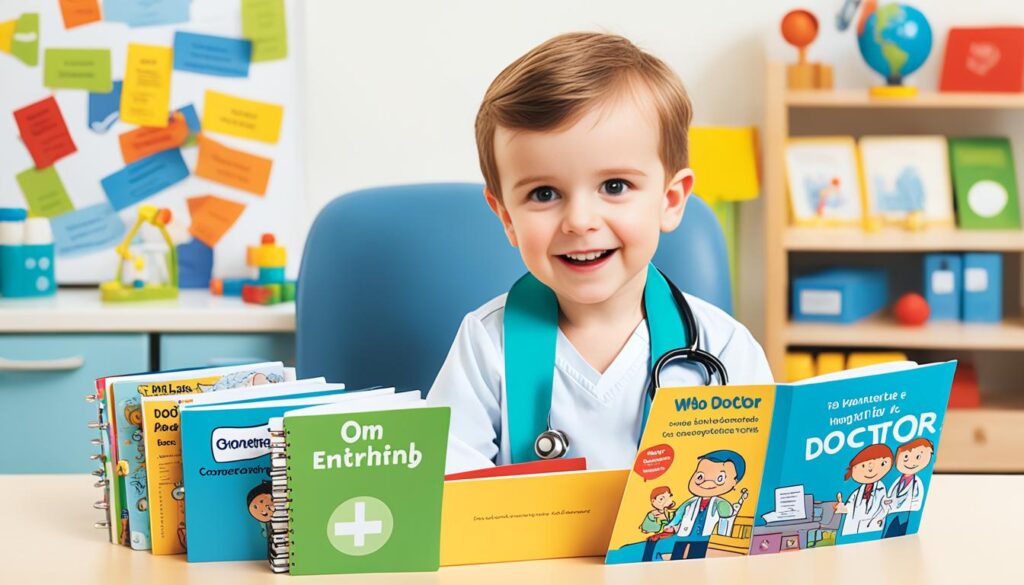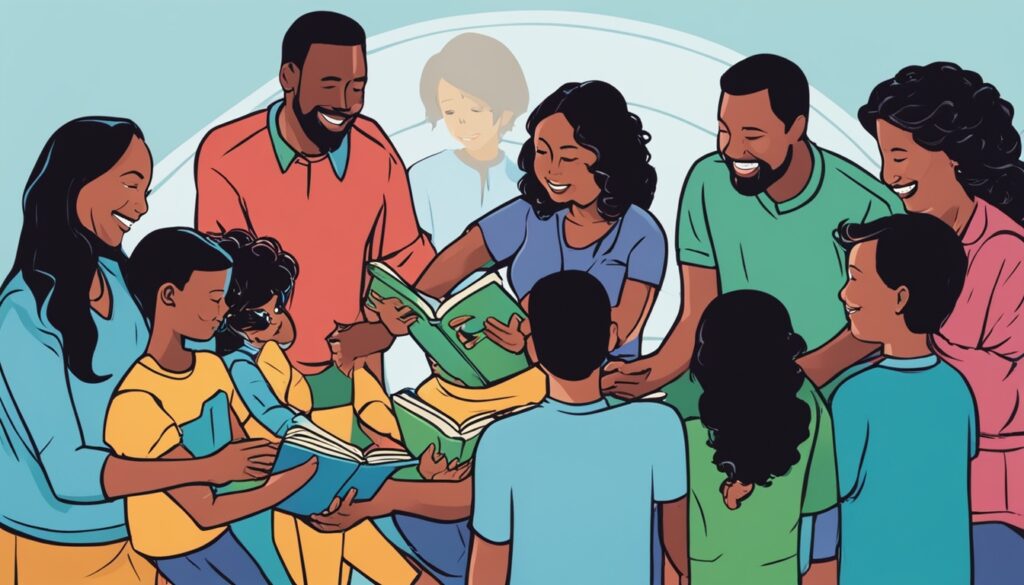As a parent, your child’s well-being is your top priority. When you have a child with special needs, navigating the maze of services, resources, and legal requirements can feel overwhelming. But you are not alone – there is a wealth of support available to help your family thrive. From early intervention programs to specialized education services, financial assistance to community-based resources, this guide will empower you to advocate for your child and access the tools they need to reach their full potential. Staying informed and building a strong support network are essential steps in ensuring your child receives the care they deserve. Whether you’re attending IEP meetings or simply looking for ways to create meaningful moments at home, even something as personal and heartfelt as a *mother’s birthday poem for daughter* can be a beautiful way to celebrate milestones. Remember, every step forward—no matter how small—is progress toward a brighter future for both you and your child.
Key Takeaways
- You are your child’s most important advocate, and there are many resources to help you in this role.
- The Individuals with Disabilities Education Act (IDEA) ensures your child has access to a free, appropriate public education.
- Early intervention services can make a significant difference for infants and toddlers with developmental delays or disabilities.
- Financial assistance programs like Supplemental Security Income (SSI) can help cover the costs of caring for a child with special needs.
- Parent training and support services empower families to navigate the complex special needs landscape.
Understanding Individuals with Disabilities Education Act (IDEA)
The Individuals with Disabilities Education Act (IDEA) is a federal law that ensures children with disabilities receive a free appropriate public education (FAPE) to meet their unique needs and prepare them for further education, employment, and independent living. IDEA aims to provide equal access and additional special education services tailored to the individual requirements of students with disabilities.
IDEA Overview: Ensuring Access to Appropriate Education
IDEA was enacted in 1990 and reauthorized in 1997, with the goal of providing a comprehensive framework for supporting the educational needs of children with disabilities. The law covers students between the ages of 3 and 21 who have one of the thirteen qualifying disabilities, such as hearing impairment, speech and language impairment, autism, or mental retardation. These students are entitled to receive special education and related services at no cost, ensuring they can access the same educational opportunities as their peers.
IDEA Resources for Families: Navigating the Process
- IDEA mandates that school districts provide a Free Appropriate Public Education (FAPE) to children with special needs, meeting state education standards and following an Individualized Education Program (IEP).
- Parents play an active role in preparing their child’s IEP or Section 504 plan, making suggestions for goals and accommodations.
- The Families and Advocates Partnership for Education project focuses on improving the educational outcomes of children with disabilities through communication between families and advocates.
- Parents under IDEA have various rights, including the availability of procedural safeguards, the ability to review and inspect their child’s educational records, and the right to file complaints or appeals regarding their child’s education.
By understanding the key aspects of IDEA and the resources available, families can navigate the process of securing appropriate educational support for their children with disabilities, ensuring they receive the necessary services and accommodations to thrive in their learning environments.
Identifying and Accessing Services
Navigating the complex landscape of developmental services and special education can feel daunting, but there are numerous resources available to support you and your child. By understanding the key steps and available assistance, you can ensure your child receives the tailored support they need to thrive.
Tracking Your Child’s Development: Learn the Signs
The first step in accessing appropriate services is to closely monitor your child’s development. The “Learn the Signs: Act Early” resource from the Centers for Disease Control and Prevention (CDC) provides a valuable guide on developmental screening and what to do if you have concerns about your child’s progress.
Early Intervention: Supporting Infants and Toddlers
If your child is experiencing developmental delays or disabilities, early intervention services required by the Individuals with Disabilities Education Act (IDEA), Part C, can provide critical support. These services help eligible infants and toddlers (younger than age 3 years) and their families address a wide range of needs, from speech and language development to physical, cognitive, and social-emotional growth.
Special Education: Tailored Instruction for Unique Needs
As your child grows, the special education system mandated by IDEA can ensure they receive the specialized instruction and accommodations necessary to succeed. IDEA defines special education as “specially designed instruction, at no cost to the parents, to meet the unique needs of a child with a disability.” The Center for Parent Information and Resources’ “10 Basic Steps in Special Education” provides a helpful overview of the special education process.
| Service | Description | Eligibility |
|---|---|---|
| Developmental Screening | Comprehensive assessment of a child’s developmental progress, identifying potential delays or disabilities | All children, with a focus on those under age 5 |
| Early Intervention | Specialized services and support for infants and toddlers (under age 3) with developmental delays or disabilities | Children with a diagnosed disability or developmental delay |
| Special Education | Tailored instruction and accommodations to meet the unique needs of children with disabilities, from preschool through high school | Children ages 3-21 with a diagnosed disability that adversely affects their educational performance |

Financial Assistance for Families
Navigating the financial landscape can be challenging when caring for a child with special needs. However, there are various financial assistance programs available to support families and ensure their children receive the care and resources they require. From Supplemental Security Income (SSI) to additional government aid, exploring these options can make a significant difference in your family’s well-being.
Supplemental Security Income (SSI) for Children
The Supplemental Security Income (SSI) program provides a monthly cash payment of up to $733 for children with disabilities whose families meet low income and asset requirements. If your child has a physical or mental disability and your family’s income and resources are limited, they may be eligible for SSI. The “SSI for Children Infographic” from the Social Security Administration can help you understand the eligibility criteria and application process.
Exploring Additional Financial Support Options
In addition to SSI, there are other financial assistance options available to support your child with special needs. These include:
- Social Security Survivor Benefits/Social Security Disability Benefits: Monthly cash benefits for unmarried children under 18 based on the parent’s lifetime earnings.
- Temporary Assistance for Needy Families (TANF): Temporary financial assistance for low-income parents caring for children, with amounts varying by state.
- Medicaid and Children’s Health Insurance Program (CHIP): Comprehensive health coverage for individuals under 19, with eligibility based on income and disability status.
- VA Pensions: Cash payments to low-income veterans with disabilities, potentially increased if they have a dependent child.
- State-specific programs: Many states offer additional services and financial support for children and adults with developmental disabilities.
Exploring these options can help ensure your child receives the financial assistance and support they need to thrive. Be sure to research the eligibility criteria and application process for each program to maximize the resources available to your family.

“The key to navigating the complex world of financial assistance for families with special needs is to be persistent and proactive. Don’t hesitate to reach out for help – there are many resources and support systems available to guide you through the process.”
Parent Education and Support Services
As a parent of a child with disabilities, you have access to valuable resources and support services to help you navigate your child’s education and development. Two key organizations that work closely with families are Parent Training and Information Centers (PTIs) and Community Parent Resource Centers (CPRCs).
Parent Training and Information Centers
PTIs are located across the United States and its territories, providing assistance to families of infants, toddlers, children, and youth with disabilities from birth to 26 years of age. These centers empower parents to actively participate in their child’s education and development, ensuring their needs are met. The Center for Parent Information and Resources maintains a directory of PTIs in each state, making it easy to find the nearest resource.
Community Parent Resource Centers
CPRCs, similar to PTIs, also work with families of children with disabilities, from birth to 26 years old. These community-based centers offer support, training, and resources to help parents advocate for their child’s rights and access appropriate services. Like PTIs, CPRCs are located throughout the country and can be found through the Center for Parent Information and Resources.
Whether you’re seeking guidance on your child’s Individualized Education Program (IEP), navigating the special education system, or simply need emotional support, these parent-led organizations are invaluable allies. By connecting with PTIs and CPRCs, you can empower yourself to be a strong advocate for your child’s success.

“PACER serves families and children with disabilities or special health care needs from birth through adulthood as well as educators and professionals.”
Remember, you’re not alone in this journey. Utilize the resources and support offered by PTIs and CPRCs to ensure your child with disabilities receives the best possible care and educational opportunities.
State and Territory Resources
Navigating the complex landscape of resources and support services for individuals with disabilities and their families can be daunting. However, each state and territory in the United States has dedicated resources and initiatives to address the unique needs of this community. By exploring these local offerings, you can unlock a wealth of invaluable assistance tailored to your specific circumstances.
Finding Local Services and Support
One of the best starting points for accessing state-level resources is ChildCare.gov, a comprehensive online portal that connects families with a wide range of services. Through this platform, you can locate developmental screening services, special education programs, and early intervention support available in your state or territory. Additionally, you can explore a variety of local services, such as disability support groups, child development centers, and early intervention programs, all designed to empower children with special needs and their families.
Each state and territory also has its own dedicated councils, commissions, and agencies focused on addressing the needs of individuals with developmental disabilities. These include the State Councils on Developmental Disabilities, Autism Ad Hoc Committees, Governor’s Councils on Developmental Disabilities, and Divisions of Developmental Disabilities. These organizations work tirelessly to advocate for the rights of the disability community, providing resources, support services, and policy guidance tailored to your local area.
Furthermore, national organizations like Easterseals, the Autism Society, and the National Association of Councils on Developmental Disabilities (NACDD) collaborate with state and local partners to ensure that families have access to a comprehensive network of assistance. Through these partnerships, you can discover specialized autism services, job training programs, and peer support opportunities that can make a significant difference in the lives of those with special needs.
| State/Territory | Key Resources and Initiatives |
|---|---|
| California | California Autism Professional Training and Information Network (CAPTAIN) |
| Michigan | Autism Alliance of Michigan |
| New Hampshire | Autism Spectrum Registry |
| Kansas | Autism Waiver Program |
| Louisiana | Autism Services |
By exploring the wealth of state and territory resources available, you can unlock a tailored support system that empowers your child’s development and ensures your family receives the assistance it needs to thrive.

Support for Military Families
As a military family with a child who has special needs, you have access to a range of resources and programs designed to support you. Military OneSource, a 24/7 gateway to trusted information, resources, and confidential help, provides valuable guidance to help you navigate special education, childcare, and other essential services.
Military OneSource: Navigating Special Needs
Military OneSource offers a wealth of information and support to assist military families with special needs. From understanding the Individuals with Disabilities Education Act (IDEA) to accessing financial assistance, the platform connects you with the resources you need to ensure your child receives the appropriate education and care.
Exceptional Family Member Program (EFMP)
The Exceptional Family Member Program (EFMP) is a mandatory program for active-duty service members with dependents who have ongoing medical, mental health, or special educational needs. Through the EFMP, military personnel work with medical and educational professionals to assess the availability of services at proposed locations, ensuring your family’s needs can be met.
Each military branch has its own EFMP, offering a range of support services, from respite care and recreational programs to information on support groups, advocacy services, and accessible housing. Enrolling in the EFMP by completing DD Form 2792 or DD Form 2792-1 is an essential step in accessing these vital resources.
“The EFMP (Exceptional Family Member Program) is mandatory for active duty service members with dependent family members having ongoing medical, mental health, or special educational needs.”
In addition to the EFMP, military families with special needs can explore other resources, such as the EFMP & Me guide, the Education Directory for Children with Special Needs, and the EFMP Family Support Feedback Tool. These tools provide valuable information and support to help you navigate the unique challenges faced by military families with special needs.

Remember, as a military family, you are not alone in your journey. The resources and support available through Military OneSource and the Exceptional Family Member Program are designed to help you and your family thrive, despite the unique challenges you may face.
special needs Accommodations and Accessibility
Ensuring accessibility and providing appropriate accommodations are crucial for empowering individuals with special needs and safeguarding their disability rights. In the United States, laws like the California Fair Employment and Housing Act (FEHA), Unruh Civil Rights Act, and Disabled Persons Act protect individuals from disability-based discrimination, mandating that employers, public facilities, and housing providers make reasonable accommodations to support those with physical or mental disabilities.
Accommodations can encompass a wide range of modifications, from physical changes to the work environment or public spaces to adjustments in policies, schedules, and technologies. These accommodations are not only beneficial for individuals with special needs but can enhance productivity and accessibility for all employees and patrons.
Employer Responsibilities for Accommodations
Employers with five or more employees in California are legally obligated to engage in a timely, good-faith interactive process to determine and provide reasonable accommodations for qualified individuals with disabilities. This may involve adjusting job duties, providing medical leave, modifying work schedules, relocating work areas, or offering specialized equipment and assistive technologies.
Employers cannot inquire about the nature or severity of disabilities during job evaluations, but they can ask about an applicant’s ability to perform job-related functions and respond to accommodation requests. Failure to engage in this interactive process can be considered unlawful discrimination.
Accessibility in Public Spaces and Housing
California’s nondiscrimination laws extend beyond the workplace, mandating that retail establishments, restaurants, hospitals, hotels, transportation, and housing provide equal services and accessibility for people with disabilities. Reasonable accommodations in housing, such as allowing modifications to dwellings at the resident’s expense, are required to ensure equal access.
Additionally, new public buildings in California must adhere to accessibility standards set by the Department of General Services (DGS), ensuring that individuals with special needs can fully participate in and benefit from these public spaces.

By prioritizing accommodations and accessibility, businesses, organizations, and communities can create more inclusive environments that empower individuals with special needs and uphold their fundamental rights. Embracing the principles of universal design and leveraging resources like the Job Accommodation Network can help organizations of all sizes make meaningful strides towards greater inclusion and accessibility.
Assistive Technology and Adaptive Learning
Assistive technology and adaptive learning play a crucial role in empowering individuals with special needs to overcome barriers and thrive in educational and personal settings. From audiobooks and text-to-speech software to speech recognition tools and digital organizers, these innovative solutions are transforming the learning landscape for students with diverse abilities.
Audiobooks, available in various formats like audiocassettes, CDs, and MP3 downloads, enhance accessibility for individuals with learning disabilities by providing an alternative to printed material. Electronic math worksheets with speech synthesis functionality can assist students who struggle with aligning math problems on paper. Information and data managers help individuals with learning disabilities plan, organize, and retrieve tasks and contacts electronically.
Optical character recognition tools, available in stand-alone units or as computer software, can scan and read printed material aloud for users with learning disabilities. Proofreading programs in word processing systems can help students identify errors in writing, supporting their literacy skills. Speech-recognition programs allow users to dictate into a microphone for text input, supporting individuals whose oral language proficiency surpasses their writing capabilities.
| Assistive Technology Tool | Benefit |
|---|---|
| Talking Calculators | Provide auditory feedback for users in verifying calculations and transfer accuracy |
| Laptop Computers and Tablets | Improve the quantity and quality of notes, aid in organizing work, and reduce spelling errors for students with learning disabilities |
| Computer-Assisted Instruction | Helpful for students with learning disabilities in spelling, expressive writing skills, and math drills |
| Text-to-Speech Software | Improve decoding, word recognition, reading fluency, and comprehension for students with learning disabilities |
| Speech-to-Text Software | Help students compose longer, more complex texts with fewer errors and improve word recognition, spelling, and reading comprehension skills |
| Word Prediction Software | Reduce the need for handwriting, improve spelling accuracy and writing skills for students with learning disabilities |
Assistive technology can have a significant effect in helping students with disabilities progress towards the goals outlined on their Individual Education Plans. As technology continues to evolve, the potential for adaptive learning solutions to empower individuals with special needs continues to grow, transforming educational experiences and enhancing quality of life.

“Assistive technology can have a significant effect in helping students with disabilities progress towards the goals outlined on their Individual Education Plans.”
In the United States, students with disabilities have the legal right to a free and appropriate K-12 education, as well as reasonable accommodations in post-secondary education. Assistive technology, which encompasses any device, software, or item that improves the learning, working, or daily life experience, is often used by people with disabilities to overcome challenges and thrive.
From text-to-speech software like Speechify to literacy support systems like Kurzweil 3000, the educational technology landscape is brimming with solutions tailored to the unique needs of individuals with learning disabilities, visual impairments, and other conditions. As artificial intelligence and mapping technologies continue to advance, the future of assistive technology in education holds immense promise, empowering learners of all abilities to reach their full potential.
Inclusive Education and Neurodiversity
In recent years, there has been growing recognition of the benefits of inclusive education and the importance of embracing neurodiversity. Inclusive education is about ensuring that all students, regardless of their abilities or special needs, have access to quality learning opportunities within the mainstream school system. This approach not only supports the academic and social-emotional development of individuals with special needs but also fosters a more diverse and accepting school community.
The Individuals with Disabilities Education Act (IDEA) in the United States and similar legislation in other countries, such as the New Zealand Education Act, have made significant strides in ensuring equal access to education for students with disabilities. These laws mandate that students with special needs be provided with a free and appropriate public education, including the right to be educated alongside their non-disabled peers in the least restrictive environment.
Neurodiversity, on the other hand, is a concept that celebrates the natural variations in human brain function and recognizes that conditions like autism, ADHD, and dyslexia are not disabilities, but rather differences in how individuals process information and interact with the world. This paradigm shift encourages us to move away from the traditional medical model of “fixing” or “curing” neurodivergent individuals and instead embrace their unique perspectives and talents.
“Neurodiversity is the idea that neurological differences like autism and ADHD are the result of normal, natural variation in the human genome.”
Implementing inclusive education and recognizing neurodiversity have been shown to have numerous benefits. Studies suggest that inclusive classrooms can improve academic achievement and social-emotional outcomes for both students with special needs and their neurotypical peers. Additionally, the neurodiversity paradigm promotes a more empowering and supportive environment, where individuals with diverse learning styles and cognitive profiles are valued for their unique contributions.
However, the road to true inclusion and acceptance of neurodiversity is not without its challenges. Some researchers argue that traditional views within special education and the medical paradigm are deeply rooted and culturally dominant, making the transition to a more inclusive and neurodiversity-affirming approach difficult. Furthermore, even in regions with inclusive education policies, some students may still be excluded from the classroom for various reasons.
Overcoming these challenges requires a multifaceted approach, including comprehensive teacher training, the development of flexible and adaptive learning environments, and a shift in societal attitudes towards individuals with special needs and neurodivergent individuals. By embracing inclusive education and celebrating neurodiversity, we can create a more equitable and enriching educational experience for all students.

Advocacy and Self-Advocacy
Advocacy and self-advocacy are fundamental pillars in the disability rights movement, empowering individuals with special needs to assert their rights, access crucial services, and shape their own lives. By understanding the power of advocacy, families can become fierce champions for their loved ones, ensuring their voices are heard and their unique needs are met.
The self-advocacy movement, which originated in Sweden in the 1970s, has since spread across the world, including the United States. This grassroots effort has led to landmark legislation like the Americans with Disabilities Act (ADA), signed in 1990, protecting the rights of individuals with disabilities. Through persistent advocacy, policy changes have also resulted in the establishment of critical programs such as Home-Based Community Services (HBCS) and the Individuals with Disabilities Education Act (IDEA).
Engaging in self-advocacy has been shown to have a profound impact on various aspects of daily life, including improved functioning, greater satisfaction of needs, enhanced self-esteem, and increased activism, according to the Journal of Applied Research in Intellectual Disabilities. Organizations like ALSO support individuals with intellectual and developmental disabilities in developing essential self-advocacy skills, empowering them to explore their interests, build trusting relationships, and navigate their rights and responsibilities.
The Importance of Self-Advocacy
For individuals with learning disabilities (LD), the ability to self-advocate is crucial. It allows them to confidently explain their needs and concerns, ensuring their voices are heard. This is particularly vital as they transition out of the K-12 education system, where their rights are safeguarded by federal laws like Section 504 of the Rehabilitation Act of 1973 and Title II of the Americans with Disabilities Amendments Act (ADAA) of 2008.
Self-advocacy is equally essential for adults with learning disabilities as they navigate higher education, community colleges, or the workforce. By disclosing their disabilities and requesting reasonable accommodations, these individuals can level the playing field and set themselves up for success. Practical strategies, such as scheduling appointments to discuss accommodations and using role-play for self-disclosure, can empower individuals to advocate for their needs effectively.
| Advocacy Strategies | Benefits of Self-Advocacy |
|---|---|
|
|
Self-advocacy is particularly crucial for individuals with intellectual and developmental disabilities, as it helps prevent depression, lack of self-confidence, and a loss of control in their lives. By developing self-advocacy skills, these individuals can make informed decisions, express their feelings, and exercise independent choices, ultimately enhancing their overall well-being and quality of life.
“Self-advocacy empowers individuals to make informed decisions, with the goal of achieving self-confidence, proper expression of feelings, and the ability to make independent choices.”
The principles of self-advocacy have their roots in the 1960s, when individuals with disabilities in Sweden began forming their own leisure clubs to take control over their lives. Today, numerous organizations, such as The Arc, S.A.B.E., Wisconsin Board for People with Developmental Disabilities, People First, and Survival Coalition of Wisconsin Disability Organizations, are dedicated to advocating for the rights and empowerment of individuals with intellectual and developmental disabilities.

Advocacy and self-advocacy are essential for individuals with special needs, ensuring their voices are heard and their rights are protected. By understanding the power of advocacy, families can become passionate champions for their loved ones, navigating the complex landscape of services and resources to create a more inclusive and supportive environment.
Community Engagement and Social Inclusion
Fostering a sense of community and social inclusion is pivotal for individuals with special needs. When people with disabilities are actively engaged in their local communities, they not only develop a stronger sense of belonging but also contribute their unique talents and perspectives, enriching the lives of those around them.
Research has shown that successful community integration offers numerous benefits, including the opportunity to build practical life skills, recover from isolation, access activities not available in segregated settings, engage with diverse communities, learn appropriate social behaviors, connect with others, and work in inclusive workplaces.
Moreover, community engagement provides advantages to the broader community as well. It fosters diverse relationships, increases public funds through taxation from people with disabilities in the workforce, lowers costs related to supporting people with disabilities using paid professionals, and showcases the talents and gifts possessed by individuals with disabilities.
Overcoming Barriers to Inclusion
Despite the recognized benefits, there are several barriers that hinder community engagement and social inclusion for individuals with special needs. These include feelings of devaluation and marginalization, lack of knowledge about rights and service availability, transportation obstacles, family resistance to integration, inadequate funding and staffing resources within organizations, and insufficiency of educational support and transition services for young individuals with disabilities.
To address these challenges, experts recommend engaging in real-life skills training programs, ensuring person-centered policies, investing in staff development, clarifying regulations around medication administration and background checks, and enhancing transportation options and travel training for public transportation use.
Fostering a Sense of Belonging
Successful programs and policies that promote community engagement and social inclusion include employment and volunteerism opportunities for self-advocates, community and recreational programs, and connecting individuals with common interests. By emphasizing the benefits of technology for communication and coordination of events, and encouraging open communication channels for sharing successful models and addressing ongoing challenges, communities can work towards creating a more inclusive and welcoming environment for individuals with special needs.

“Engaging individuals with disabilities in their local communities not only fosters a stronger sense of belonging but also enriches the lives of those around them.”
| Benefits of Community Engagement | Barriers to Inclusion |
|---|---|
|
|
Conclusion
As we conclude this comprehensive guide, we hope that you feel empowered and equipped to navigate the resources and support available for individuals with special needs. Advocating for inclusive communities and empowering families is crucial in ensuring that every child receives the tailored education and services they deserve.
Remember, you are not alone in this journey. Across the United States, dedicated organizations, educators, and policymakers are working tirelessly to improve access, promote inclusion, and foster a society that embraces the diversity of special needs. By staying informed, connecting with support networks, and actively participating in the decision-making process, you can make a meaningful difference in the lives of your loved ones and contribute to a more inclusive future.
Together, let’s continue to break down barriers, challenge stereotypes, and create a world where individuals with special needs can thrive and reach their full potential. Your voice, your determination, and your commitment to advocating for special needs can inspire others and drive positive change in your community and beyond.









